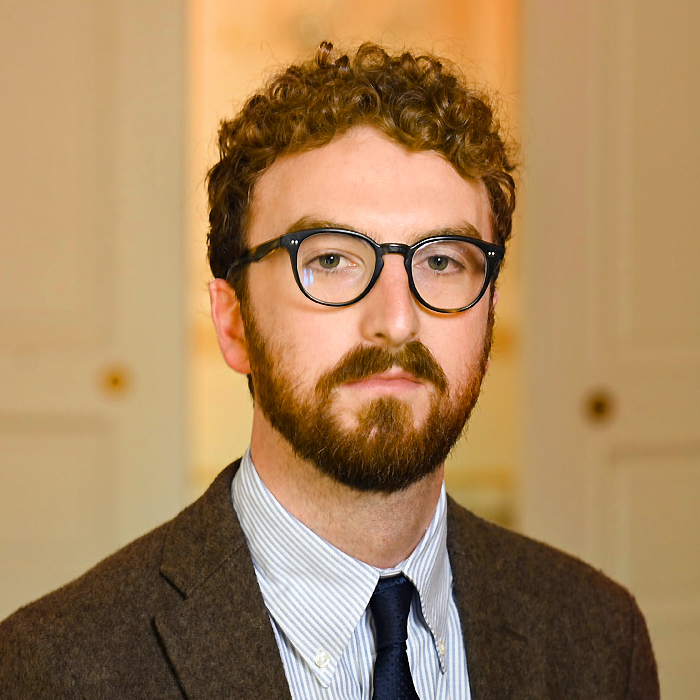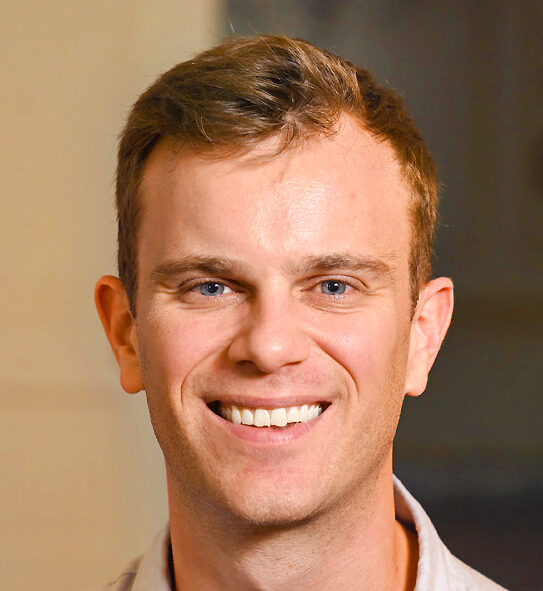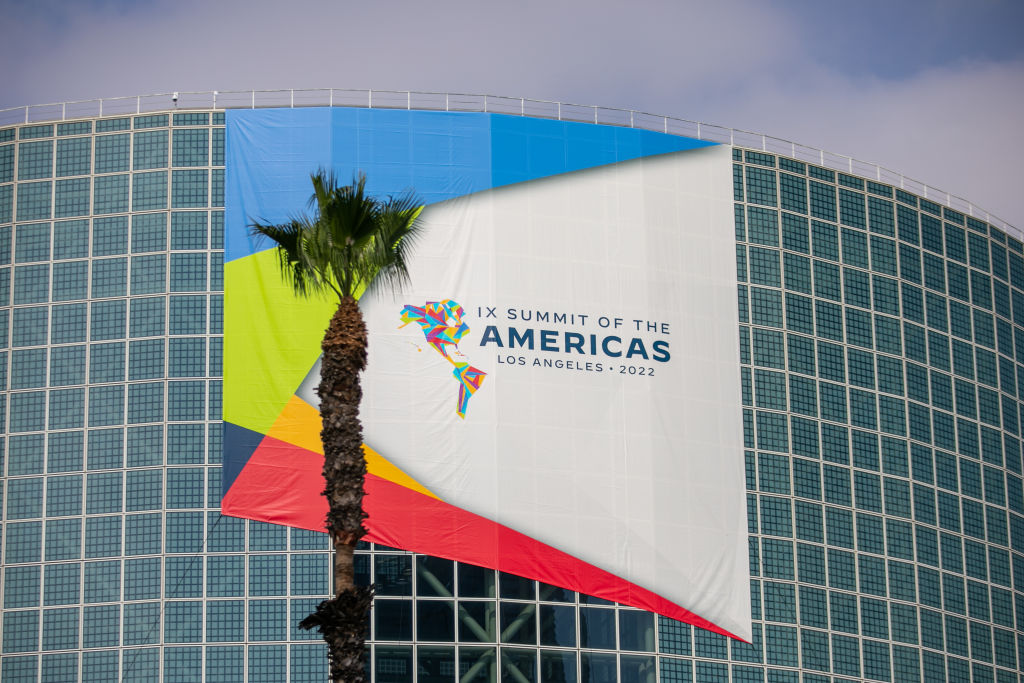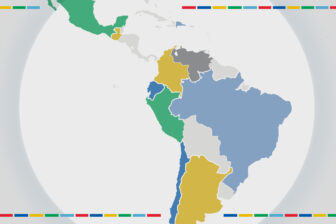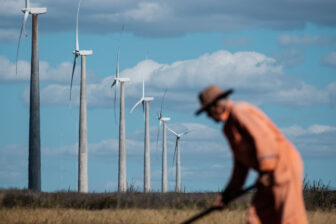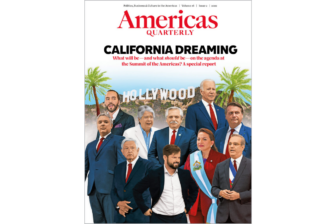LOS ANGELES—The Ninth Summit of the Americas is underway, with leaders from around the hemisphere gathering in Los Angeles. Below, AQ has compiled highlights and top initiatives coming out of the summit.
—
On Friday June 10, the Los Angeles Declaration on Migration and Protection set out common targets on temporary worker programs, aid for communities especially affected by migration and other initiatives.
The Declaration mirrors frameworks developed in Colombia and Ecuador in response to Venezuelan migration.
—
On Thursday June 9, Vice President Kamala Harris announced the U.S.-Caribbean Partnership to Address the Climate Crisis 2030 (PACC 2030). The framework is intended to deepen cooperation between the U.S. and Caribbean countries on clean energy, climate adaptation and resilience. Financing from multilateral development banks looks to be a key part of the effort.
—
Also on Thursday, Alphabet CEO Sundar Pichai announced that Google will invest $1.2 billion in Latin America over the next five years, focusing on digital infrastructure, digital skills training and entrepreneurship.
A quarter of this commitment, $300 million, will be managed by the Google.org philanthropic organization. The company specified that some of the funding would go to Pro Mujer—an NGO that supports women-led businesses in Guatemala, Honduras and El Salvador—as well as “organizations working to protect biodiversity in the Amazon rainforest.”
—
Also on Thursday, Chilean President Gabriel Boric spearheaded the Americas for the Protection of the Ocean Declaration. Leaders from eight other counties—including Peruvian President Pedro Castillo, Colombian President Iván Duque and U.S. Climate Envoy John Kerry—signed on.
Boric said signatories to the declaration would take steps to preserve ocean ecosystems that would help meet their Paris Climate Agreement commitments.
—
Also on Thursday, a group of four development banks—the Inter-American Development Bank (IDB), the Development Bank of Latin America (CAF), the Caribbean Development Bank (CDB) and the Central American Bank for Economic Integration (CABEI)—announced their intention “to devote a substantial portion of our respective financing for climate-related projects,” totaling as much as $50 billion over the next five years.
—
On Wednesday June 8, the White House announced an “Action Plan on Health and Resilience in the Americas.”
The initiative is designed to shore up healthcare services in Latin America, especially for remote and marginalized communities, as well as prevent and prepare for pandemics and other public health emergencies. The program will be funded as part of the $1 billion Global Health Worker Initiative announced in May.
—
Also on Wednesday, the White House announced the creation of the “Americas Health Corps” or in partnership with the Pan American Health Organization (PAHO).
The Action Plan, which the White House said will be “fully in effect by 2030,” calls for regional cooperation to boost healthcare systems and improve “coordination, transparency and accountability.”
It said the program “will provide basic and specialized training to 500,000 public health, health science, and medical professionals throughout the region within five years.”
—
Also on Wednesday, President Joe Biden announced the Americas Partnership for Economic Prosperity, a “high-standards approach that is built on shared values” and intended to deepen economic cooperation across areas of special focus including strengthening supply chains, clean energy and inclusive trade.
Initial consultations with hemispheric partners will follow after the conclusion of the Summit, the White House said. A senior administration official suggested a ministerial meeting to launch formal negotiations was likely in early fall.
—
On Tuesday June 7, U.S. Vice President Kamala Harris announced a $50 million initiative to offer paid community service opportunities to young people in El Salvador, Guatemala and Honduras. The Central American Service Corps (CASC) is designed to help address the root causes of migration. Some businesses—“over a dozen”—have pledged to offer CASC members job training, mentorship and other forms of support.
—
Also on Tuesday, Harris announced new commitments amounting to $1.9 billion from the U.S. private sector to create economic opportunity in Central America.
This brings the total of such pledges to $3.2 billion since May 2021, when Harris announced a “Call to Action” for the private sector to make such commitments.
At the Summit, Harris will continue to call on the private sector and social organizations to make similar pledges at events organized by the Partnership for Central America and the Chamber of Commerce, according to a White House press release.
—
Also on Tuesday, Secretary of State Antony J. Blinken and Denver Mayor Michael Hancock announced that the U.S. will host the first-ever Cities Summit of the Americas in April, 2023, in Denver, Colorado.
It will convene “hundreds of local elected officials from the U.S. and across the Western Hemisphere, as well as thousands of private stakeholders,” according to a State Department press release. The press release stated a goal of developing solutions to issues including “sustainable development, climate resilience, democracy renewal, foreign direct investment, women’s empowerment, uplifting underserved communities and public safety.”
The State Department also announced a new Cities Forward initiative to address “sustainability, equity and resilience issues.” The initiative will connect U.S. and Latin American cities to develop sustainability action plans and coordinate with the private sector, civil society, multilaterals and U.S. government agencies to implement them.


